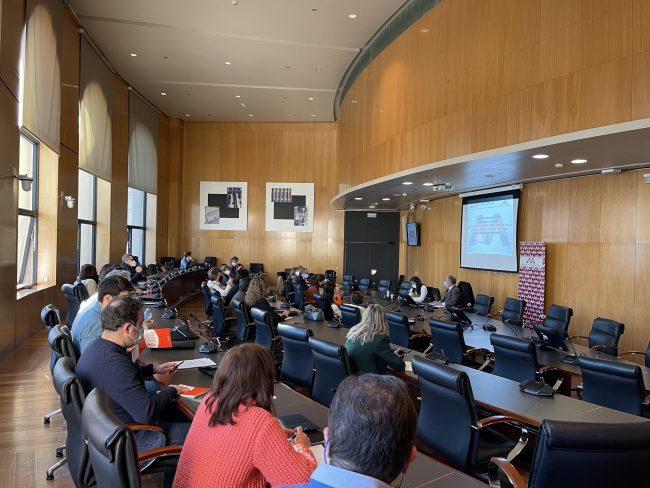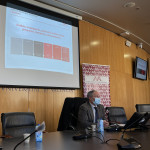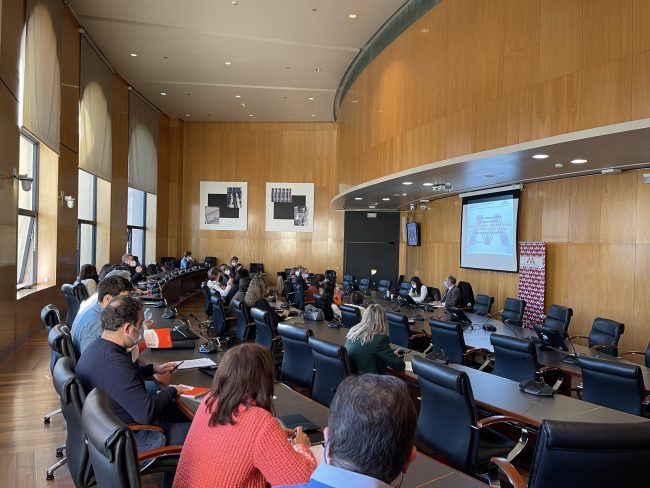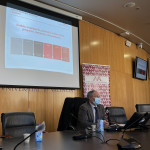Disincentivizing the incentive: What moves us?
In 2007, a young consultant was enjoying his job promotions thanks to his great computer skills. In May 2013, he decided to leave his own country to alert what would later become one of the biggest irregularities committed by one of the world’s leading economic and military powers: the United States was illegally monitoring many citizens and authorities of other countries. countries, under the guarantee of State secrecy. His action, denouncing publicly and facing accusations and persecution, was carried out solely on “principles” [1], without any incentives. To increase the probability that these complaints will occur, a series of incentives are used that can facilitate the perception that, through this action, the individual will receive something in return. “Incentives must be used to favor or facilitate particular actions” [2]. Under this motto, the intervened economies have delegated to the incentives the function that they can hardly reach due to a lack of resources in certain environments. If the State cannot, the citizens that make it up can be in charge of bringing those who have broken the rules to justice. On this basis, bounty hunters were born, mostly American private agents who roamed the territory recovering fugitives or executing finances, without the same guarantees and responsibilities as the official authorities. Dr. King Schultz accompanied by Django, touring the territory of Texas in search of the most wanted criminals in the southern United States, reminds us how for a time it was the most “effective” method of dispensing justice. It seems like a matter of procedural streamlining, but it has become a psychological and social issue: our social design has been transformed by our political and economic system, so incentives have a greater or lesser effect depending on where we are. Can these economic incentives be a persuasion to the citizens?: they could be. The danger of prizes has materialized throughout our history: from the tips during the Third Reich, to our own history, in which wealth arose over landowners and thousands of citizens lost their farms due to anonymous complaints about the contrary political ideology. of others. Along these lines, what was initially conceived as an element of persuasion to attract information ended up becoming an element of State coercion, through which the State exerted violence on a few, with the collaboration of as many others. However, a reasonable amount of time has passed over which the incentives have evolved and have ceased to have that meaning (at least for now). For what concerns us, the incentive that provides efficiency to the detection and correction of administrative irregularities or criminal offenses is confused with economic rewards for ethical work. In an ideal world, all citizens motu proprio denounce irregularities they witness: a national police officer tries to bribe me to remove a fine, a mayor hires his sister-in-law, or my neighbor on the sixth floor does not register his assistant. This seems to be the example that they try to transmit to us from the Nordic region, which sweeps well their trench of immoral attitudes about their own territory. However, on the other side of the scale, the northern region of the American continent tells us that the best method to try to reach an ideal world is to grant economic amounts to citizens, because, and following Ruth W. Grant, these incentives “they are the threads that move us”. Observing the numbers, in the United States exorbitant amounts are granted for denouncing corrupt plots, making many denouncers of corruption multimillionaires. Are those the threads that move them? In our territory, taking into account that we lack a strict regulation at the national level on these points that we have discussed, the whistleblowers of corruption declare that there is no prize that makes up for their shortcomings: the problem is not in the prize, it is in the justice system. Our incentives are not similar to those of our neighbors, because our society is not the same as American society, we are separated by the Atlantic Ocean and various historical processes that have influenced our evolution as a society. For this reason and many others, part of the current doctrine rejects economic incentives as a way of motivating society, but without providing an answer to the problem. It is rejected “just because”, without contributing with possible recommendations to grant incentives to complainants, when reality demands elements that encourage these complaints. Several studies not only focus on justice, but also on the social difference that affects this conception: in territories where the cost of reporting is much higher, economic rewards are the key to developing an adequate criminal policy against corruption. That citizen’s “civic” obligation to report corruption becomes something that hinders the citizen himself, because he does not know the repercussion that corruption has on his day to day life, and it supposes a difficult burden for him to face, mitigating that negative aspect with economic rewards. attractive to the lower classes. This is how Soares and Tenshin [3] explain it when they justify the importance of economic incentives in countries with a wide class border, but their uselessness in those societies where there is no marked inequality. Greater protection, guarantee of the anonymity of complaints, third-party facilitators of information, protection of the family environment, free legal advice, psychological assistance and guarantee that the process will not entail any cost for the complainant. These could be the logical measures to take into account – especially considering that many of them are requests from those who denounce corruption – but today they are not considered because their figure is not under debate, but rather what is expected of their complaints, beyond the inclusion of complaint channels. But, in order for these complaint channels to be used effectively and not be left over to what Concepción Campos properly identifies as “blah blah blah”, we must give certain incentives to their potential users, giving them greater confidence in their usefulness and a perception of protection. María Cristina Fernández González Researcher at the Global…









